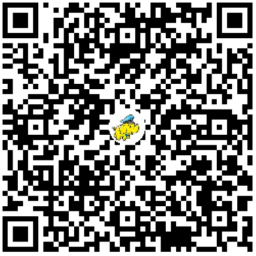Django 认证
authenticate 函数 django.contrib.auth __init__.py
def authenticate(request=None, **credentials):
"""
If the given credentials are valid, return a User object.
"""
for backend, backend_path in _get_backends(return_tuples=True):
try:
user = _authenticate_with_backend(backend, backend_path, request, credentials)
except PermissionDenied:
# This backend says to stop in our tracks - this user should not be allowed in at all.
break
if user is None:
continue
# Annotate the user object with the path of the backend.
user.backend = backend_path
return user
# The credentials supplied are invalid to all backends, fire signal
user_login_failed.send(sender=__name__, credentials=_clean_credentials(credentials), request=request)
def load_backend(path):
return import_string(path)()
# 这个import_string django.util.module_loading
def _get_backends(return_tuples=False):
backends = []
for backend_path in settings.AUTHENTICATION_BACKENDS: # setting 里面是 django.conf __init__.py settings.AUTHENTICATION_BACKENDS 最终会拿到global_settings
#里面的AUTHENTICATION_BACKENDS ['django.contrib.auth.backends.ModelBackend']
#settings.AUTHENTICATION_BACKENDS 这个会调 LazySettings的__getattr__ 方法 看下方的LazySettings的类
backend = load_backend(backend_path)
backends.append((backend, backend_path) if return_tuples else backend)
if not backends:
raise ImproperlyConfigured(
'No authentication backends have been defined. Does '
'AUTHENTICATION_BACKENDS contain anything?'
)
return backends
def import_string(dotted_path):
"""
Import a dotted module path and return the attribute/class designated by the
last name in the path. Raise ImportError if the import failed.
"""
try:
module_path, class_name = dotted_path.rsplit('.', 1)
except ValueError as err:
raise ImportError("%s doesn't look like a module path" % dotted_path) from err
module = import_module(module_path)
try:
return getattr(module, class_name)
except AttributeError as err:
raise ImportError('Module "%s" does not define a "%s" attribute/class' % (
module_path, class_name)
) from err
ENVIRONMENT_VARIABLE = "DJANGO_SETTINGS_MODULE"
class LazySettings(LazyObject):
"""
A lazy proxy for either global Django settings or a custom settings object.
The user can manually configure settings prior to using them. Otherwise,
Django uses the settings module pointed to by DJANGO_SETTINGS_MODULE.
"""
def _setup(self, name=None):
"""
Load the settings module pointed to by the environment variable. This
is used the first time settings are needed, if the user hasn't
configured settings manually.
"""
settings_module = os.environ.get(ENVIRONMENT_VARIABLE) # os.environ拿到的书 python manage.py runserver 跑起来后的环境 这个里面拿到的这个 变量是 项目的settings
if not settings_module:
desc = ("setting %s" % name) if name else "settings"
raise ImproperlyConfigured(
"Requested %s, but settings are not configured. "
"You must either define the environment variable %s "
"or call settings.configure() before accessing settings."
% (desc, ENVIRONMENT_VARIABLE))
self._wrapped = Settings(settings_module) #这里调用的是 下方的Settings
def __repr__(self):
# Hardcode the class name as otherwise it yields 'Settings'.
if self._wrapped is empty:
return '<LazySettings [Unevaluated]>'
return '<LazySettings "%(settings_module)s">' % {
'settings_module': self._wrapped.SETTINGS_MODULE,
}
def __getattr__(self, name):
"""Return the value of a setting and cache it in self.__dict__."""
if self._wrapped is empty: # self._wrapped 需要到父类去寻找 父类里面的这个字段也是 empty类
self._setup(name) # 调用上方的方法
val = getattr(self._wrapped, name)
self.__dict__[name] = val
return val
def __setattr__(self, name, value):
"""
Set the value of setting. Clear all cached values if _wrapped changes
(@override_settings does this) or clear single values when set.
"""
if name == '_wrapped':
self.__dict__.clear()
else:
self.__dict__.pop(name, None)
super().__setattr__(name, value)
def __delattr__(self, name):
"""Delete a setting and clear it from cache if needed."""
super().__delattr__(name)
self.__dict__.pop(name, None)
def configure(self, default_settings=global_settings, **options):
"""
Called to manually configure the settings. The 'default_settings'
parameter sets where to retrieve any unspecified values from (its
argument must support attribute access (__getattr__)).
"""
if self._wrapped is not empty:
raise RuntimeError('Settings already configured.')
holder = UserSettingsHolder(default_settings)
for name, value in options.items():
setattr(holder, name, value)
self._wrapped = holder
@property
def configured(self):
"""Return True if the settings have already been configured."""
return self._wrapped is not empty
class Settings:
def __init__(self, settings_module):
# update this dict from global settings (but only for ALL_CAPS settings)
for setting in dir(global_settings): #拿到的是django框架里面的 全局变量
if setting.isupper(): #如果是大写的,就给settings 类设置一个 setting变量值 并把全局配置里面的变量设置成setting的值
setattr(self, setting, getattr(global_settings, setting))
# store the settings module in case someone later cares
self.SETTINGS_MODULE = settings_module
mod = importlib.import_module(self.SETTINGS_MODULE)
tuple_settings = (
"INSTALLED_APPS",
"TEMPLATE_DIRS",
"LOCALE_PATHS",
)
self._explicit_settings = set()
for setting in dir(mod):
if setting.isupper():
setting_value = getattr(mod, setting)
if (setting in tuple_settings and
not isinstance(setting_value, (list, tuple))):
raise ImproperlyConfigured("The %s setting must be a list or a tuple. " % setting)
setattr(self, setting, setting_value)
self._explicit_settings.add(setting)
if not self.SECRET_KEY:
raise ImproperlyConfigured("The SECRET_KEY setting must not be empty.")
if self.is_overridden('DEFAULT_CONTENT_TYPE'):
warnings.warn('The DEFAULT_CONTENT_TYPE setting is deprecated.', RemovedInDjango30Warning)
if hasattr(time, 'tzset') and self.TIME_ZONE:
# When we can, attempt to validate the timezone. If we can't find
# this file, no check happens and it's harmless.
zoneinfo_root = '/usr/share/zoneinfo'
if (os.path.exists(zoneinfo_root) and not
os.path.exists(os.path.join(zoneinfo_root, *(self.TIME_ZONE.split('/'))))):
raise ValueError("Incorrect timezone setting: %s" % self.TIME_ZONE)
# Move the time zone info into os.environ. See ticket #2315 for why
# we don't do this unconditionally (breaks Windows).
os.environ['TZ'] = self.TIME_ZONE
time.tzset()
def is_overridden(self, setting):
return setting in self._explicit_settings
def __repr__(self):
return '<%(cls)s "%(settings_module)s">' % {
'cls': self.__class__.__name__,
'settings_module': self.SETTINGS_MODULE,
}
SRE实战 互联网时代守护先锋,助力企业售后服务体系运筹帷幄!一键直达领取阿里云限量特价优惠。

更多精彩








